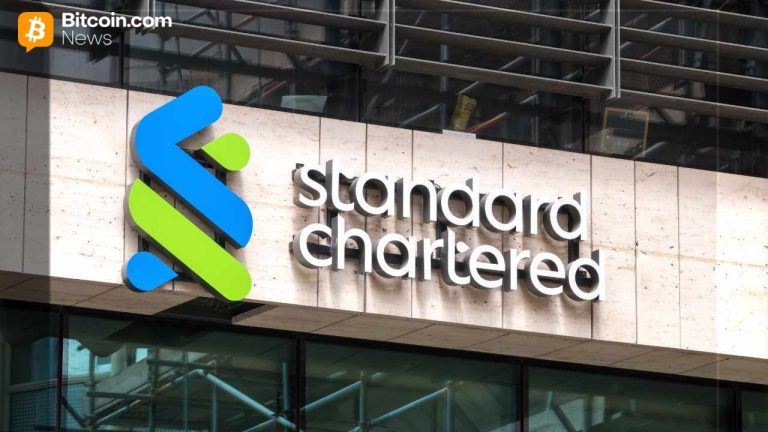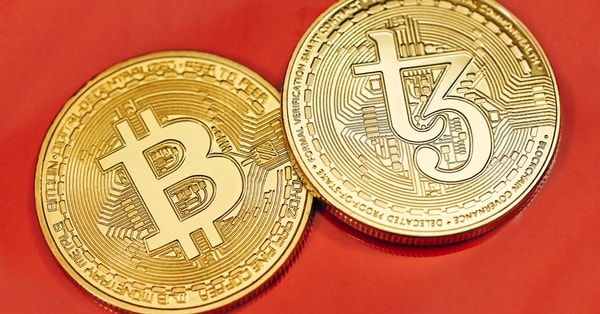Standard Chartered CEO Envisions Blockchain-Driven Transactions
Standard Chartered CEO Bill Winters predicts blockchain will revolutionize global transactions, emphasizing tokenization's role in financial infrastructure.

In a bold prediction that echoes the sentiments of many financial industry leaders, Bill Winters, the CEO of Standard Chartered, recently stated that blockchain technology is set to revolutionize global financial transactions. His assertions come amid a growing acceptance of digital assets and tokenization among banks and asset managers, marking a significant shift in the financial landscape.
Blockchain technology serves as a decentralized ledger that records transactions across many computers in such a way that the registered transactions cannot be altered retroactively. This technology is the backbone of cryptocurrencies like Bitcoin and Ethereum but has broader applications that extend far beyond digital currencies.

Winters' prediction aligns with a broader trend—many global banks are now recognizing the transformative potential of blockchain. The ability to conduct secure, transparent, and instantaneous transactions is appealing, particularly in an era where efficiency and cost-effectiveness are paramount for financial institutions.
Tokenization refers to the process of converting rights to an asset into a digital token on a blockchain. This can apply to various assets including real estate, art, and even intellectual property. By tokenizing assets, organizations can enhance liquidity and provide fractional ownership opportunities, making investments accessible to a broader audience.
Winters emphasized that tokenization is crucial for the future of global market infrastructure. He noted that as financial products become more complex and digital, the need for a robust, blockchain-based system to manage these products will become increasingly essential. The convenience and security provided by blockchain could help mitigate risks associated with traditional transactional systems.
As the world continues to embrace digitalization, the financial sector is not far behind. With central banks exploring Digital Central Bank Currencies (CBDCs) and private entities launching stablecoins, there is a clear momentum towards digital assets. Winters pointed out that nearly all transactions in the future may be facilitated through blockchain technology, highlighting a significant shift in how financial transactions are envisioned.
This shift is not without its challenges. Regulatory frameworks are still catching up to the rapid developments in blockchain and digital assets, and many traditional institutions are grappling with how to integrate these new technologies while ensuring compliance and security.

Winters' comments reflect a broader understanding that blockchain is not merely a technological trend but is poised to redefine the entire financial ecosystem. The implications of this shift are profound, particularly for emerging markets where traditional banking infrastructure may be less developed.
By adopting blockchain technology, these regions could leapfrog traditional financial systems, fostering greater economic inclusion. For instance, individuals in developing countries could gain access to financial services that were previously unreachable, empowering them to participate in the global economy.
Despite the optimistic predictions, there are significant hurdles to overcome. One primary concern is the energy consumption associated with blockchain networks, particularly those that rely on proof-of-work algorithms. Critics often highlight the environmental impact of mining operations, prompting calls for more sustainable practices.
Additionally, there are security issues to consider. While blockchain's decentralized nature offers advantages, it is not immune to cyberattacks and fraud. Ensuring the integrity of transactions on a blockchain requires robust security measures and constant vigilance.

As Standard Chartered’s CEO Bill Winters boldly predicts a future where blockchain powers nearly all global transactions, it is clear that the financial industry is at a pivotal moment. The convergence of traditional finance with innovative technologies like blockchain and tokenization promises to reshape how transactions are conducted, making them faster, more transparent, and accessible to a wider audience.
While challenges remain, the potential for blockchain to revolutionize global financial infrastructure is undeniable. As banks, asset managers, and regulators work together to navigate this evolving landscape, the future of finance appears poised for a significant transformation.
Tags:
Related Posts
Unlocking Mindful Productivity: 5 Strategies for Remote Work
Struggling to stay focused while working from home? Discover five unique strategies that boost productivity and enhance your well-being in this engaging read.
Mastering 2023: Key Marketing Insights for Brands
Discover how to navigate the ever-changing marketing landscape in 2023 and elevate your brand with fresh insights and strategies.
Unlock Your Creativity: 10 Daily Habits You Need
Struggling with creativity? Discover 10 everyday habits that can ignite your imagination and help you think outside the box. Let’s get inspired together!
Consumer Trends to Watch for Marketing Success in 2024
Discover how to harness the latest consumer trends to elevate your marketing strategy for 2024. Dive into insights that could transform your approach!
5 Game-Changing Time Management Tips for a Productive Day
Tired of chaotic workdays? Discover simple time management techniques that will skyrocket your productivity and transform your routine for the better!
Mastering Your Home Office: 7 Tips for Remote Work Success
Struggling to find your rhythm in remote work? Discover seven essential tips to create a sustainable routine and achieve that perfect work-life balance.